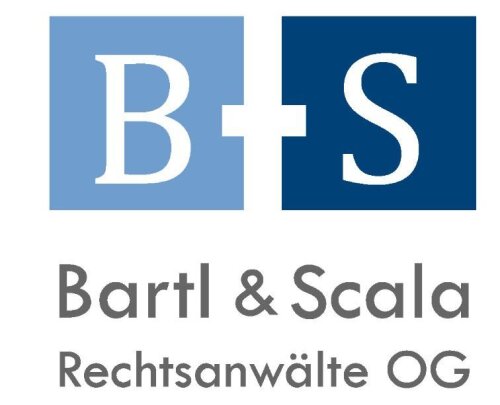Best Housing, Construction & Development Lawyers in Graz
Share your needs with us, get contacted by law firms.
Free. Takes 2 min.
Free Guide to Hiring a Real Estate Lawyer
List of the best lawyers in Graz, Austria
About Housing, Construction & Development Law in Graz, Austria
Housing, Construction & Development law in Graz, Austria covers a wide spectrum of regulations and legal frameworks that govern residential and commercial building activities. This includes aspects such as property acquisition, zoning laws, building permits, construction contracts, environmental regulations, and tenant-landlord relations. The legal landscape is shaped by both Austrian federal laws and regional laws specific to Styria, where Graz is the capital.
Why You May Need a Lawyer
Legal assistance may be vital for several reasons when dealing with Housing, Construction & Development in Graz. Some common situations include:
- Purchasing or selling property: Ensuring the transaction complies with all legal requirements.
- Entering into construction contracts: Drafting, reviewing or negotiating terms and conditions.
- Tenant-landlord disputes: Resolving conflicts through legal means, such as unpaid rent or eviction processes.
- Obtaining building permits: Navigating the complex application process for construction projects.
- Environmental compliance: Ensuring the development project adheres to environmental laws and regulations.
- Zoning issues: Understanding and complying with local zoning laws.
- Property development: Managing the legal aspects of developing a property for residential or commercial use.
Local Laws Overview
Several key aspects of local laws are particularly relevant to Housing, Construction & Development in Graz:
- Zoning Laws: Regulations that dictate the use of land and the types of structures permitted in specific areas.
- Building Codes: Standards for construction that ensure safety, health, and environmental protection.
- Tenant Protection: Laws that provide rights and protections to tenants, such as rent control and eviction processes.
- Environmental Regulations: Rules to ensure the sustainability and environmental impact of construction projects are managed.
- Heritage Preservation: Laws aimed at preserving historical buildings and sites in Graz.
Frequently Asked Questions
1. What documents are needed to buy a property in Graz?
You will need a purchase agreement, proof of identity, and often a pre-approved loan from a bank. Additional documents may be required based on the specific property and local regulations.
2. How do I apply for a building permit in Graz?
You need to submit an application to the local building authority, including detailed plans, project description, and other required documentation. The process may involve reviews and public hearings.
3. What are the key aspects of a construction contract?
A construction contract should outline the scope of work, deadlines, payment schedule, responsibilities, and provisions for dispute resolution. Consulting a lawyer can help ensure all aspects are legally sound.
4. Are there any specific environmental regulations for construction in Graz?
Yes, there are various environmental protections in place, including waste management, emissions control, and preservation of green spaces. Compliance is critical to avoid penalties and project delays.
5. What can I do if my landlord is not maintaining the property?
You can request repairs in writing and document the issues. If the landlord fails to comply, you may need to seek legal recourse to enforce maintenance obligations.
6. How do zoning laws affect my development project?
Zoning laws dictate what type of building can be constructed, its use, and various requirements such as setbacks, height restrictions, and density. Checking local zoning rules is crucial before starting a project.
7. What is the process for evicting a tenant in Graz?
The eviction process involves serving a notice of eviction, filing a legal complaint if the tenant does not vacate, and potentially a court hearing. Legal protocols must be followed meticulously to avoid complications.
8. Are there any rent control laws in Graz?
Yes, some properties may be subject to rent control, limiting the amount landlords can charge. These regulations are aimed at protecting tenants from excessive rent increases.
9. Can I modify a historically preserved building?
Modifications to historically preserved buildings are heavily regulated. You will likely need special permits and must comply with heritage preservation laws to ensure the integrity of the structure is maintained.
10. What steps should I take if a construction project is delayed?
Review the contract for terms regarding delays, communicate with the contractor to understand the reasons, and seek legal advice to explore options for resolution or compensation.
Additional Resources
These resources can offer additional support and information:
- City of Graz Building Authority: For permits and local regulations.
- Styria Chamber of Commerce: Information and support for businesses.
- Austrian Bar Association: Find qualified lawyers specializing in Housing, Construction & Development.
- The Austrian Tenant Union: Assistance and advocacy for tenants.
Next Steps
If you need legal assistance in Housing, Construction & Development in Graz, consider the following steps:
- Consult with a specialized lawyer: Engage with professionals who have expertise in local laws and regulations.
- Gather necessary documentation: Collect all relevant paperwork and information related to your legal issue.
- Schedule an initial consultation: Discuss your situation, understand your legal options, and define a clear path forward.
- Stay informed: Keep yourself updated on any changes in local laws that may impact your case or project.
Proper legal guidance can help ensure the successful navigation of Housing, Construction & Development matters in Graz, ensuring compliance and protecting your interests.
Lawzana helps you find the best lawyers and law firms in Graz through a curated and pre-screened list of qualified legal professionals. Our platform offers rankings and detailed profiles of attorneys and law firms, allowing you to compare based on practice areas, including Housing, Construction & Development, experience, and client feedback.
Each profile includes a description of the firm's areas of practice, client reviews, team members and partners, year of establishment, spoken languages, office locations, contact information, social media presence, and any published articles or resources. Most firms on our platform speak English and are experienced in both local and international legal matters.
Get a quote from top-rated law firms in Graz, Austria — quickly, securely, and without unnecessary hassle.
Disclaimer:
The information provided on this page is for general informational purposes only and does not constitute legal advice. While we strive to ensure the accuracy and relevance of the content, legal information may change over time, and interpretations of the law can vary. You should always consult with a qualified legal professional for advice specific to your situation.
We disclaim all liability for actions taken or not taken based on the content of this page. If you believe any information is incorrect or outdated, please contact us, and we will review and update it where appropriate.















